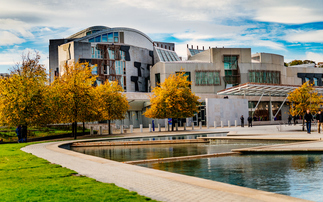World's largest crude oil exporter says it will diversify economy to cut greenhouse gases by 130 million tonnes
Saudi Arabia hopes to slash its greenhouse gas emissions by up to 130 million tonnes by 2030, according to its national climate change action plan published today.
The world's largest crude oil exporter this morning delivered its much-anticipated Intended Nationally Determined Contribution (INDC) ahead of this month's UN talks in Paris, where nearly 200 countries are expected to sign a global deal to tackle climate change.
Saudi Arabia said that under the plan it intended to diversify its economy, step up investment in energy efficiency and renewable energy technologies, promote the use of carbon capture and storage, shift domestic energy supplies to gas, and minimise fugitive methane emissions and flaring in oil production.
The OPEC member was the last of the G20 states to file its INDC to the United Nations, coming just days before a gathering of the G20 in Turkey, which is expected to include climate change on the agenda.
Saudi Arabia's plan is thin on detail and it does not include the kingdom's current emissions levels. It also stresses that the plan is dependent on "robust" oil export revenues over the coming decades and that it "reserves the right" to update its plan.
"It is also premised on the fact that the economic and social consequences of international climate change policies and measures do not pose disproportionate or abnormal burden on the kingdom's economy," the document stated.
However, Saudi Arabia's decision to submit its plan at all represents a major boost for the Paris talks, highlighting that even oil producing nations are taking steps towards delivering a global deal to tackle climate change.
The submission means nearly 160 countries have now filed their INDCs, after yesterday also saw Sudan submit its own plan ahead of COP21.
Sudan's INDC proposes to deliver a 20 per cent share of renewable energy generation by 2030, boost investment in energy efficiency and increase the use of natural gas. The republic also sets out plans to increase forest coverage to 25 per cent by 2030 and improve waste management.
The latest INDCs came as ministers from a number of key participants in the negotiations gather in Paris for a final round of talks ahead of the Paris Summit. According to reports, the French hosts of the meeting said progress was being made on the key issue of introducing a mechanism for assessing emissions reduction efforts at regular interviews. They also confirmed over 110 world leaders are now expected to make an appearance at the Paris Summit.
In related news, the European Commission today welcomed confirmation that member states will step up spending on climate funding for developing nations, having mobilised €14.5bn last year.
"The EU has today confirmed its position as the global leader in climate finance," said Pierre Moscovici, Commissioner for Economic and Financial Affairs, Taxation and Customs. "Ahead of the crucial rendez-vous that is COP21, we are delivering significant financial support for developing countries and will continue to do so. We have also set out clear principles today to maximise the effectiveness of climate finance: everyone paying their share in line with their evolving capabilities; achieving the full involvement of the private sector by ensuring the right enabling environments; and targeting funds to the most vulnerable countries."
This article is part of BusinessGreen's Road to Paris Hub, hosted in association with PwC










